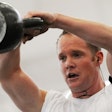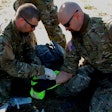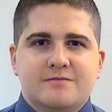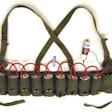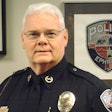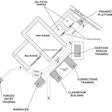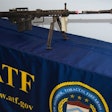Those with military experience are very familiar with the expression "sleep fast." This refers to grabbing a few winks whenever, wherever possible. That's because in the military, sleep is unpredictable and often inadequate—especially in combat.
In recent years, both the medical community and the military have conducted extensive, continuous testing on all aspects of sleep, from minimum sleep requirements to the effects of sleep deprivation.
I'm not an expert on sleep, and my views are only those of an average person who knows just enough to defer to the real experts in the field. Respected experts like Lt. Col. Dave Grossman who discusses at length in his presentations and books, the effects of sleep—especially sleep deprivation.
Occupational Hazard?
Why is sleep deprivation an issue for police? Because, just like the military, police have unpredictable, changeable, sporadic work and sleep patterns. Police often routinely "double back" from their regular work shifts—for court, overtime (double and even triple shifts), and for SWAT with callups at any hour of the day or night.
Like the military, police are very familiar with what it means to "sleep fast" – sleeping whenever they get the chance. Firefighting is another profession with unpredictable, sporadic work and sleep patterns, but with a very different view toward sleep.
Firefighters are "institutionally smarter" than military and police. By "smarter" I mean firefighters are not only authorized to "sleep on duty," but even have beds provided for them. In stark contrast, police are put up on charges for "sleeping on duty," and in the military they are court marshaled for "sleeping on post."
On-Duty Disasters
Studies show that sleep deprivation contributes to work-related mistakes and accidents, including possibly two recent fatal traffic accidents. A Midwest security guard on his way home after working his first overnight shift apparently fell asleep at the wheel, striking a vehicle and killing its driver.
A West Coast sheriff deputy's cruiser struck and killed two bicyclists, and injured two others. The accident, which occurred at 10:30am, may have been the result of the deputy falling asleep at the wheel—after working a 12+ hour shift the day before.
Both cases are under investigation. These are only two of the many actual and near-miss incidents where sleep deprivation may be a factor.
Sleep Debt
While sleep deprivation is a growing concern for law enforcement, there is a light at the end of the sleepless tunnel. That light is getting the recommended 7 to 8 hours of sleep every day. However, for police, this is often far easier than done, given the unpredictability of the job. The result is "sleep debt." The good news, according to Dave Grossman, is we can pay off "sleep debt" by "catching up" on lost sleep. Also, a cat nap of at least 30 minutes is helpful, although not a substitute for enough sleep.
Now, I'm not advocating sleeping or napping on duty. Not only will it get you put up on charges, but it's also dangerous (since you're vulnerable to anyone intending you harm). Instead, what I'm advocating is, no matter how demanding your work, family obligations and hours are, strive to get enough sleep every possible day. And when this isn't possible, when you do get the opportunity, catch up on your sleep, to eliminate or reduce your "sleep debt."
This is especially true for SWAT, where you are subject to Callups 24/7. "Murphy" (as in Murphy's Law) is fond of late-night, early morning Callouts, especially right after you've finally fallen asleep. How many of you have awakened from a dead sleep at 3 a.m., shaking cobwebs from your brains? Then, minutes later, you're headed to a life and death situation.
When the Callup ends, it's time to work your regular shift, handling a number of high-risk warrants, often working overtime. By this time, you're beyond ready for some much-needed sleep. So, you finally fall into bed and into immediate deep sleep only to be awakened at 3 a.m. by your pager because you have another SWAT Callout. Now you wish you had gone to bed as soon as you'd gotten home, but instead you chose to "unwind" by watching your favorite TV show.
Catching Up
This may not happen every day, but you get the picture. Police work "crazy" hours. They are going to work when most people are going home, working when most people are home.
However, as Dave Grossman points out, there's good news. You can still get enough rest if you get 7 to 8 hours of sleep each day on a regular basis. When this isn't possible, the next best thing is to catch up on your sleep to reduce or eliminate your "sleep debt."
And remind yourself that once in awhile, under the right circumstances, it's OK to take a little "cat nap" (as long as it's at least 30 minutes).
Medical experts are proving the importance of sleep when it comes to proper performance, especially for police and military. However, when it comes to sleep, the best advice of all may be what the military has been telling us for many years: "sleep fast." Because the life you save just may be your own.










